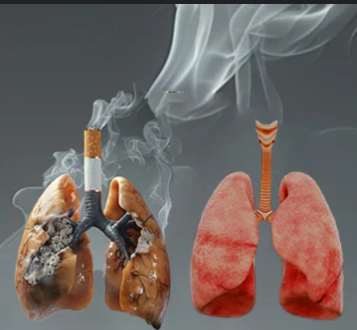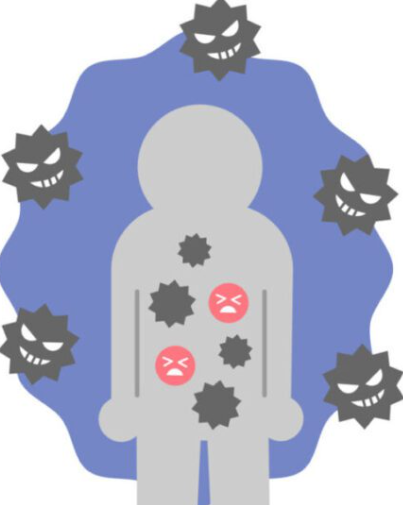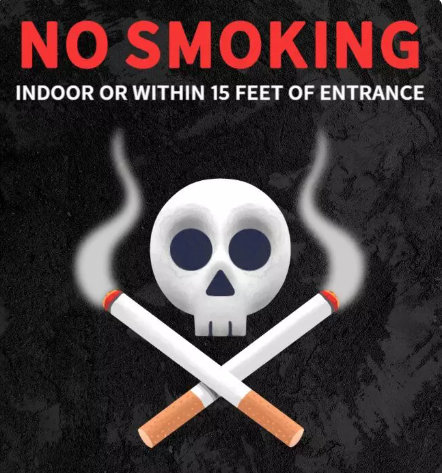Say No to Tobacco: Upholding a Smoke-Free Culture at UChenab
The University of Chenab stands at the forefront of promoting health, discipline, and ethical conduct among students. In line with the Higher Education Commission (HEC)’s national policy, UChenab proudly declares itself a 100% smoke-free campus. Tobacco is a serious public health concern, especially among youth, and educational institutions have a critical responsibility to foster a culture of awareness and prevention. With this commitment, UChenab not only complies with regulatory frameworks but also champions the holistic well-being of its community.
UChenab: A 100% No-Smoking Campus
The University of Chenab takes pride in maintaining a completely smoke-free environment. Smoking, vaping, and all tobacco-related activities are strictly banned across academic blocks, hostels, cafeterias, libraries, open spaces, and transportation vehicles affiliated with the university. This policy reflects UChenab’s values of respect, safety, and responsibility. All stakeholders—students, faculty, staff, and visitors—are expected to comply with this standard.

Understanding the Harmful Effects of Tobacco
The dangers of tobacco extend far beyond the individual user. Cigarette smoke contains over 7,000 harmful chemicals—many of which are carcinogenic.
Lung Cancer and Respiratory Damage
Tobacco use is the leading cause of lung cancer worldwide. It destroys lung tissues and leads to chronic respiratory diseases such as COPD and bronchitis.

Heart Disease and Stroke

Nicotine and other chemicals in tobacco significantly raise blood pressure and cholesterol, increasing the risk of cardiovascular complications.
Weakening of the Immune System
Tobacco impairs the body’s natural defense system, making users more susceptible to infections and slowing the healing process.

Impact on Reproductive Health
Tobacco use is linked to reduced fertility in both men and women. It also increases risks during pregnancy, including birth defects and miscarriages.
Threat of Secondhand Smoke

Secondhand smoke contains toxic substances that are equally harmful to non-smokers. Exposure can lead to respiratory infections, heart disease, and developmental issues in children.
Disadvantages of Tobacco Use
Tobacco use brings a multitude of disadvantages that extend beyond individual health. Students who indulge in smoking often experience reduced academic performance due to lack of concentration, increased absenteeism, and chronic fatigue. Additionally, such habits are financially draining. The money spent on such products could otherwise support educational resources or healthy lifestyle choices.

Social disadvantages also emerge, as smokers may face isolation, damaged relationships, and a negative public image. In professional and academic environments, its use reflects poorly on personal discipline and responsibility, potentially limiting future career opportunities.
Environmental Impact of Tobacco

Tobacco use poses serious environmental hazards that are often overlooked. From cultivation to disposal, each phase causes ecological damage. Its farming requires large amounts of pesticides and deforestation, which depletes soil nutrients and biodiversity. Cigarette production contributes to industrial pollution through energy use and chemical waste. Most alarmingly, cigarette butts—made from non-biodegradable filters—are the world’s most littered item. These butts release toxic chemicals into soil and water, harming marine life and ecosystems.
On university campuses, such littering damages cleanliness, clogs drains, and increases maintenance costs, further justifying a strict no-smoking policy.
Impact on Student Life and Academic Performance
Tobacco consumption does not only harm the body—it also affects mental health, decision-making, and academic performance. Smokers are more likely to experience anxiety, fatigue, and impaired concentration. These factors result in:
- Decreased academic productivity
- Higher absenteeism
- Lower class engagement
- Weakened social relationships
By eliminating it from the academic setting, UChenab ensures that students can focus on growth, discipline, and achievement.
Rules and Regulations at UChenab
To uphold the smoke-free commitment, the university enforces strict rules under the anti-tobacco policy. These include:
- Zero tolerance for tobacco consumption on campus
- Prohibition of tobacco sale within 50 meters of the university boundary
- Ban on promotional material or sponsorship related to tobacco
- No use of e-cigarettes, vape pens, or hookahs
Clear signage is displayed across campus as reminders of these regulations, reinforcing the message of prevention and compliance.
Educating for Prevention: Awareness at UChenab
Awareness is the foundation of long-term behavioral change. At UChenab, multiple campaigns, workshops, seminars, and classroom interventions are organized to educate students about:
- The physical and psychological effects of smoking
- Addiction and the role of peer pressure
- Nicotine withdrawal symptoms and coping strategies
- The connection between smoking and mental health
- Methods for quitting and where to seek support
These initiatives are part of UChenab’s larger health education framework, nurturing informed and responsible individuals.
The Role of Students in Supporting a Smoke-Free Culture
Students play a pivotal role in ensuring the effectiveness of tobacco-free policies. Every student at UChenab is expected to:
- Respect and promote the no-smoking rule
- Avoid bringing or using tobacco on campus
- Educate peers about the dangers of smoking
- Support classmates who want to quit
- Report violations in a responsible manner

A healthy campus starts with individual choices. By saying no to tobacco, students protect themselves and contribute to the wellness of the entire community.
Towards a Healthier, Brighter Future
The University of Chenab believes that a tobacco-free academic environment is a cornerstone of success. When students are free from the grip of nicotine and other harmful substances, they become more focused, resilient, and inspired. UChenab’s anti-tobacco policy aligns with the university’s mission to cultivate leaders who embody integrity, discipline, and care for society.
By standing against tobacco, UChenab stands for:
- Health over habit
- Knowledge over addiction
- Discipline over disruption
Together, we can build a future where creativity, innovation, and health go hand in hand.

